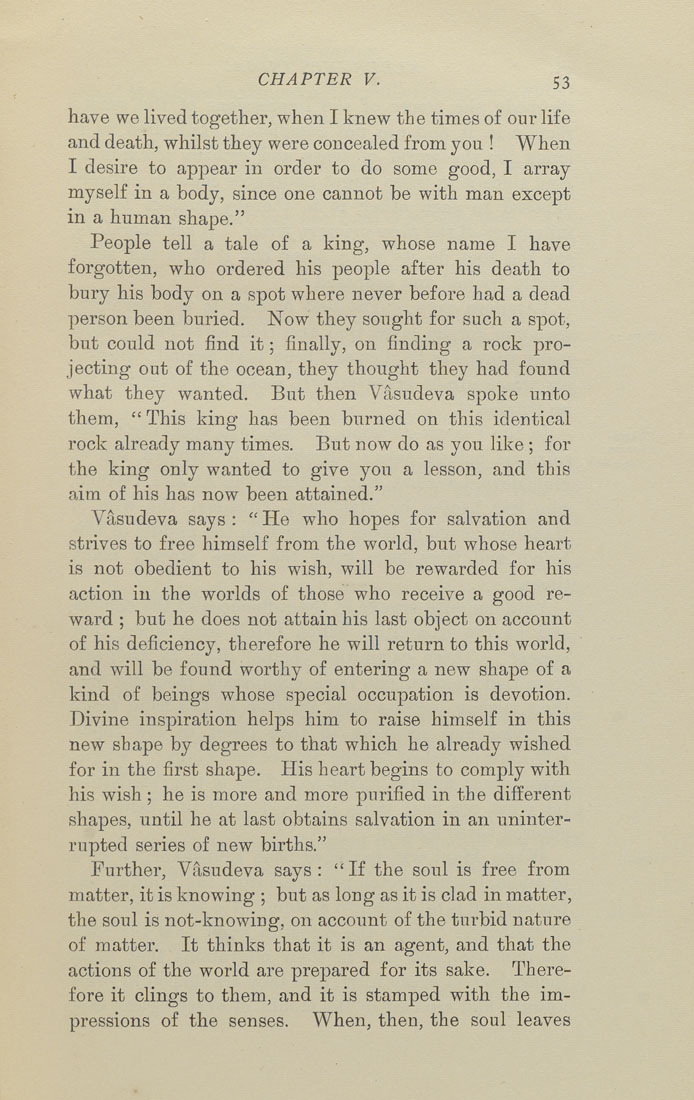Bīrūnī, Muḥammad ibn Aḥmad, Alberuni's India (v. 1)
(London : Kegan Paul, Trench, Trübner & Co., 1910.)
|
||
|
|
|
|
| Page 53 |

CHAPTER V. 53 have we lived together, when I knew the times of our life and death, whilst they were concealed from you ! When I desire to appear in order to do some good, I array myself in a body, since one cannot be with man except in a human shape." People tell a tale of a king, whose name I have forgotten, who ordered his people after his death to bury his body on a spot where never before had a dead person been buried. Now they sought for such a spot, but could not find it; finally, on finding a rock pro¬ jecting out of the ocean, they thought they had found what they wanted. But then Vasudeva spoke unto them, " This king has been burned on this identical rock already many times. But now do as you like ; for the king only wanted to give you a lesson, and this aim of his has now been attained." Vasudeva says : " He who hopes for salvation and strives to free himself from the world, but whose heart is not obedient to his wish, will be rewarded for his action in the worlds of those who receive a good re¬ ward ; but he does not attain his last object on account of his deficiency, therefore he will return to this world, and will be found worthy of entering a new shape of a kind of beings whose special occupation is devotion. Divine inspiration helps him to raise himself in this new shape by degrees to that which he already wished for in the first shape. His heart begins to comply with his wish ; he is more and more j^urified in the different shapes, until he at last obtains salvation in an uninter¬ rupted series of new births." Further, Vasudeva says: "If the soul is free from matter, it is knowing ; but as long as it is clad in matter, the soul is not-knowing, on account of the turbid nature of matter. It thinks that it is an agent, and that the actions of the world are prepared for its sake. There¬ fore it clings to them, and it is stamped with the im¬ pressions of the senses. When, then, the soul leaves |
| Page 53 |







